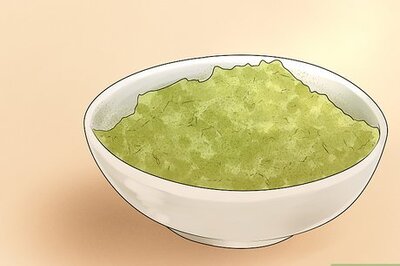
views
New Delhi: Manual scavenging is one of the "most shameful practices" and the government is committed to bring a law to address the menace, Rural Development Minister Jairam Ramesh said on Monday. Inaugurating a photo exhibition on UN Human Rights Day at British Council here, he said "around three lakh families still clean around 27 lakh dry latrines" that exist in India.
"We are committed to end manual scavenging, the most degrading surviving practice of untouchability and it raises the issue of caste based discrimination," he said. Ramesh suggested a three-pronged strategy to end manual scavenging.
The civil society and activists have a role to raise awareness and work in the areas to bring a visible change, he said. Also, the legal framework that recognises the magnitude of the problem and works as a deterrent and the resettlement and rehabilitation of the families by imparting them skills based training, he said.
He further said that the state governments needed to recognise that the practice is "still very much alive" and urged them to initiate a change at the ground level. "Unless we get a sense of shame, anger and take it as an affront to our, not just the person involved, dignity, there can be no change in the existing practice," he said.
One of the challenges for the government is to address the issue of manual scavenging in the Railways, Ramesh said. The work in setting bio-toilets in rail coaches has started, he said but added this large scale task will take around 6-7 more years to complete. "The existing law hasn't been able to end this inhuman practice and through this campaign we are trying to bring all the stakeholders to work towards abolishing it as soon as possible," said Rajan Khosla, Director of Poorest Areas Civil Society.
Thirty photographs by Sanjit Das, Firoz Ahmad and Nologo put on display showcase the various aspects involved in everyday life of manual scavengers. "From the conspicuous different sets of utensils and sitting arrangements to the subtle behaviours deeply embedded in the caste systems, the images highlight the struggles and the poignancy of the manual scavengers that are usually the women," Das said.


















Comments
0 comment